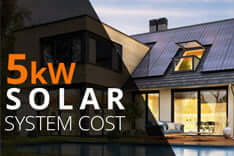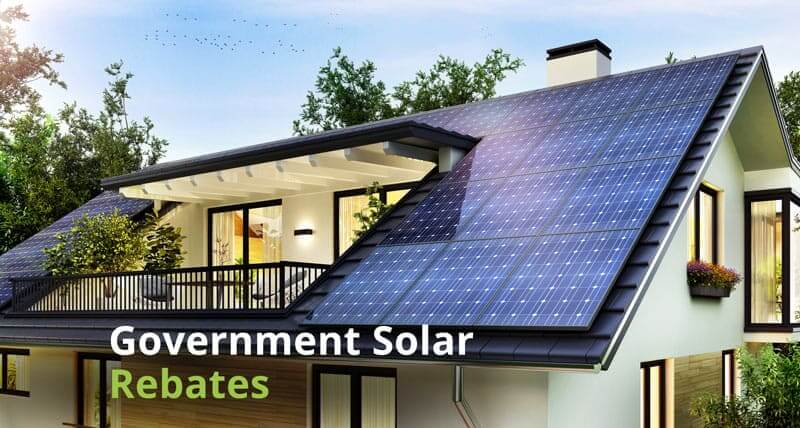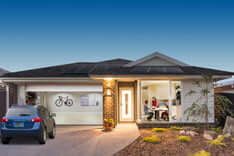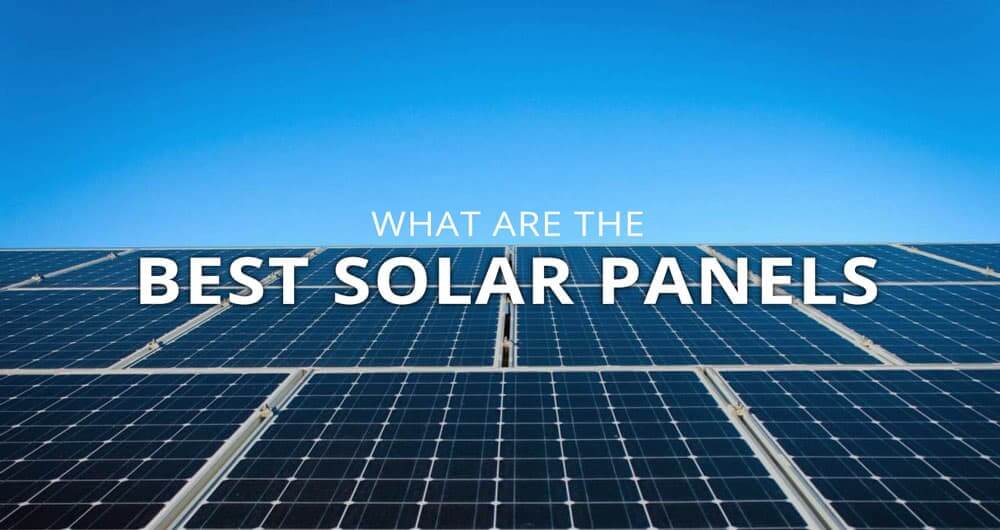Home Are Solar Panels Difficult to Maintain?
Are Solar Panels Difficult to Maintain?
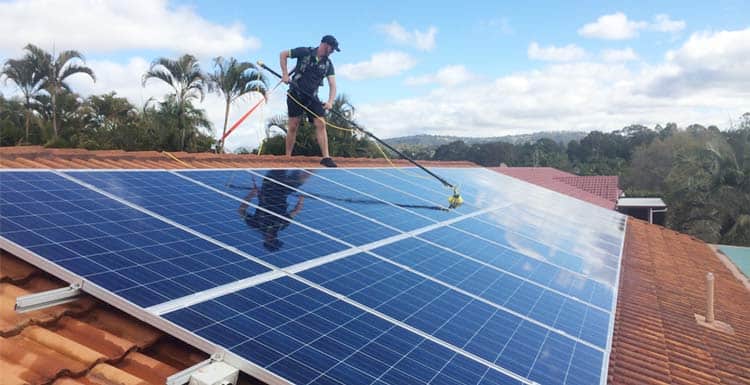
If you’re considering putting in some solar panels, or if you’ve just got your new system operational, you might be curious about the maintenance and care they’ll require.
Solar panels are not difficult to maintain. They are specifically designed for the outdoors and are made to withstand any type of weather. However, they will need a cleaning every year because dust, bird feces, and leaves can get stuck on them which may affect their effectiveness.
In this article, we will go through a 6-point checklist for maintenance as well as how location, climate, and the type of system you have might affect maintenance.
Table of Contents
ToggleSteps to Maintaining Solar Panels
Step 1: Keep them in full sunlight
I know this sounds like a no-brainer, but trees grow pretty quickly and even a partially shaded system can have a large effect on the power production of your system.
Step 2: Clean them once a year min.
You will need to get up on your roof or pay a service to give your panel’s quick once-over every year. Bird poo, leaves, and dust tend to build up pretty quickly, all of which need removing for unobstructed light for your panels.
You can buy solar cleaning kits that include a biodegradable soap and a soft sponge or rag. You can also mix up your own DIY vinegar-based solution. It is important that no harsh cleaning products are used that will scratch or cloud the surface of the panels.
Step 3: Keep an eye on the monitoring system
Most systems will come with a handy app that you can easily keep an eye on production. If there is a drop-off for no apparent reason, it warrants further investigation by first checking the panels themselves.
Are solar panels expensive to maintain?
Once installed, solar panels are quite cheap to monitor and maintain. Aside from any technical issue you might encounter, which is rare, all you will need to fork out for is some soapy water and a sponge to give them a clean every 12 months.
If you live in dustier climates, it is recommended you clean your panels every 6 months for maximum efficiency in power production. You can get away with squirting the hose on them every 6 months, with a full clean every 12 months.
Don’t Use a Pressure Washer
The surface of solar panels is quite strong as they were specially designed to sit in the sun for 25 years and withstand anything nature can dish out, including hail storms, but it’s a good idea not to push your luck.
Pressure washers come in many forms, and some shooting water with such force can crack your panels or force water in the edges, causing fogging.
The panels are expensive to replace and will set you back years in paying them off, so stick to soapy water and a rag.
Understanding Solar Panel Parts
Over the years, as solar panels are becoming more popular, the cost of solar panel maintenance has dramatically reduced due to a better understanding of energy-generating panels. The general maintenance for solar panels is quite low, and this is due to a couple of factors.
Firstly, solar panels do not have many moving parts, which reduces the risk of breakages and cracks due to a lower number of spaces within the equipment. This dramatically lowers the cost of maintenance over time as the smooth surfaces and rigid body frames are easy to look after. Any sudden cracks or scratches can be detected on time and repaired before they worsen.
Dust and debris will occasionally fall on the panels over time, and usually, most of them will slide off due to the angle at which the panels are installed, however, some of these particles can remain on the panels and obstruct the rate at which sunlight is absorbed by the panels and can lead to an overall decrease in energy output. Most of this can be avoided by regularly checking the panels and wiping off any particles with a simple soap and water solution.
Location and Climate
In colder regions where snow falls often, maintenance is also relatively easy as most of the snow that lands on the panels will either slide off due to the inclination of the panels or simply melt off from the sun or the internal heat generated by the panels when they are absorbing sunlight. However, checking on the panels and manually wiping any excess snow is still advisable.
Despite the do-it-yourself nature of most of the maintenance, it is also wise to occasionally call on professional help to check up on the solar panels, especially if the panels are installed on a very high roof that isn’t easily accessible. These professionals can analyze and assess any internal fault that may be taking place inside the solar panels. They can also evaluate the overall output and efficiency, and advise you on how to properly ensure that your solar panels last for an even longer period.
Longevity of Solar Panels
When it comes to guaranteeing, solar panels can last for as long as 20 years when properly installed and maintained. In these 20 years, you will significantly reduce your utility bills, generate a large amount of electricity, and provide enough clean energy to benefit your community.
Conclusively, solar panel maintenance isn’t very expensive or difficult; following some simple guidelines, you can power your house efficiently for years without much stress.
FAQs
Yes, solar panels are generally very low maintenance. They contain no moving parts so there is very little chance that they can be broken or damaged. The only maintenance they need is cleaning. Dust and dirt need cleaning off as it builds up over time so panels can absorb as much sunlight as possible. Luckily, the rain will take care of this for you in most cases. You should hire a professional to do the job every 12 – 18 months or if you notice a drop in power production.
Solar panels do not need a lot of maintenance, they don't break very easily and often will last for a very long time. However, they will start to become less effective over the years. They decrease in effectiveness by an average of 1% per year. This means a solar panel won't become completely redundant for at least 40 years. You may wish to replace them sooner should you start to notice a problem with their decreased output. Warranties on solar panels are typically 25 years.
Solar panels don’t require a lot of maintenance but they will need to be cleaned every 1 – 2 years. You can do this yourself making maintenance free or you can have them professionally cleaned which can cost anywhere from $10-$20 per panel. Solar panels are very cheap to maintain when compared to a car or even your own body! The savings enjoyed by generating your own energy will easily cover maintenance costs.
Solar panels require as much direct sunlight as possible to run at maximum efficiency, being dirty can prevent the sunlight from getting through. Cleaning all the dust, dirt, and grime off them helps them run at maximum efficiency. The rain is often enough to keep them clean, though you can hire professionals to do it too.
Solar panels decrease in efficiency by approximately 1% each year. They will last about 40 years at this rate before they become essentially useless. You may wish to replace them sooner if the lack of power output becomes a problem. Should your solar panel become damaged by storms etc they will need replacing earlier. The typical warranty for solar panels are 25 years.
Whilst you can use a weak pressure washer on your solar panels it is not advisable. The high power pressure washers are too strong and can badly damage your solar panels. It is best to use soapy water and a brush, or call a professional solar panel cleaner.
Many solar panels come with 20-25 year warranties. Companies guarantee that a solar panel will operate at a high level of efficiency for this long. After 20 years, solar panels will start to degrade in efficiency even faster. They may need replacing the closer to 40 years old they get.
Solar panels come with protective glass or plastic covers. If these should break when you are cleaning the solar panels and water enters the solar panel, yes you could be electrocuted. It could even be fatal, so don't clean your panels if they are broken. It is best to replace or repair any broken solar panels as soon as possible for this very reason.
Some solar panels are stronger than others and can hold your weight. This being said, it is not advisable to walk on solar panels. You could break them and/or hurt yourself. Most solar panels have glass covers, so they are not unbreakable. Broken glass can be very dangerous; you could cut yourself quite badly. Cleaning broken panels can also result in electrocution. It is safer to just walk around them.
Windex is not recommended for use on a solar panel. The strong chemicals are not good for the glass or the environment. Most solar panels are cleaned with deionized water by professionals. If you are going to clean them yourself, just use soapy water. Or better yet, just hire a professional.
Yes, solar panels can be damaged by hail. Hail can crack the glass paneling and once it melts can cause damage to the electric circuits inside the solar panels. Hail isn't always going to damage your solar panels, but it is a possibility. This is more likely in places prone to tropical storms, where the hail is larger and more likely to break the glass; not just bounce off it.
Solar panels do cool your roof. Normally when sunlight hits the roof of your home, the heat is absorbed by the tiles, and it then enters your home. When it hits the solar panel, it enters the solar panel and doesn’t make its way to the roof of the house itself. Your roof’s temperature may be as much as 5 degrees cooler with solar panels. This is a good way to cool your house slightly in hotter states like Arizona, Texas, Florida.
When a solar panel breaks it needs to be replaced. Broken panels do not produce electricity as efficiently and run the risk of electrocuting you, especially if they are wet. Normally, all that breaks is the glass cover and that can be replaced easily. If the internal components of the solar panel are damaged the whole panel may need to be replaced.
Having your solar panel professionally cleaned will cost about $10-$20 per panel. Multiplied by however many solar panels you own. You could alternatively rely on the rain to do most of your cleaning, but a professional is needed now and again.
Cleaning your solar panels can make a big difference depending on how dirty they were to start with. If you live somewhere like Arizona where there is lots of intense sunlight year-round, and it is very dusty, this might be a good idea. If you live somewhere that's more often grey and cloudy it is even more important to keep them clean.
Table of Contents
Toggle

